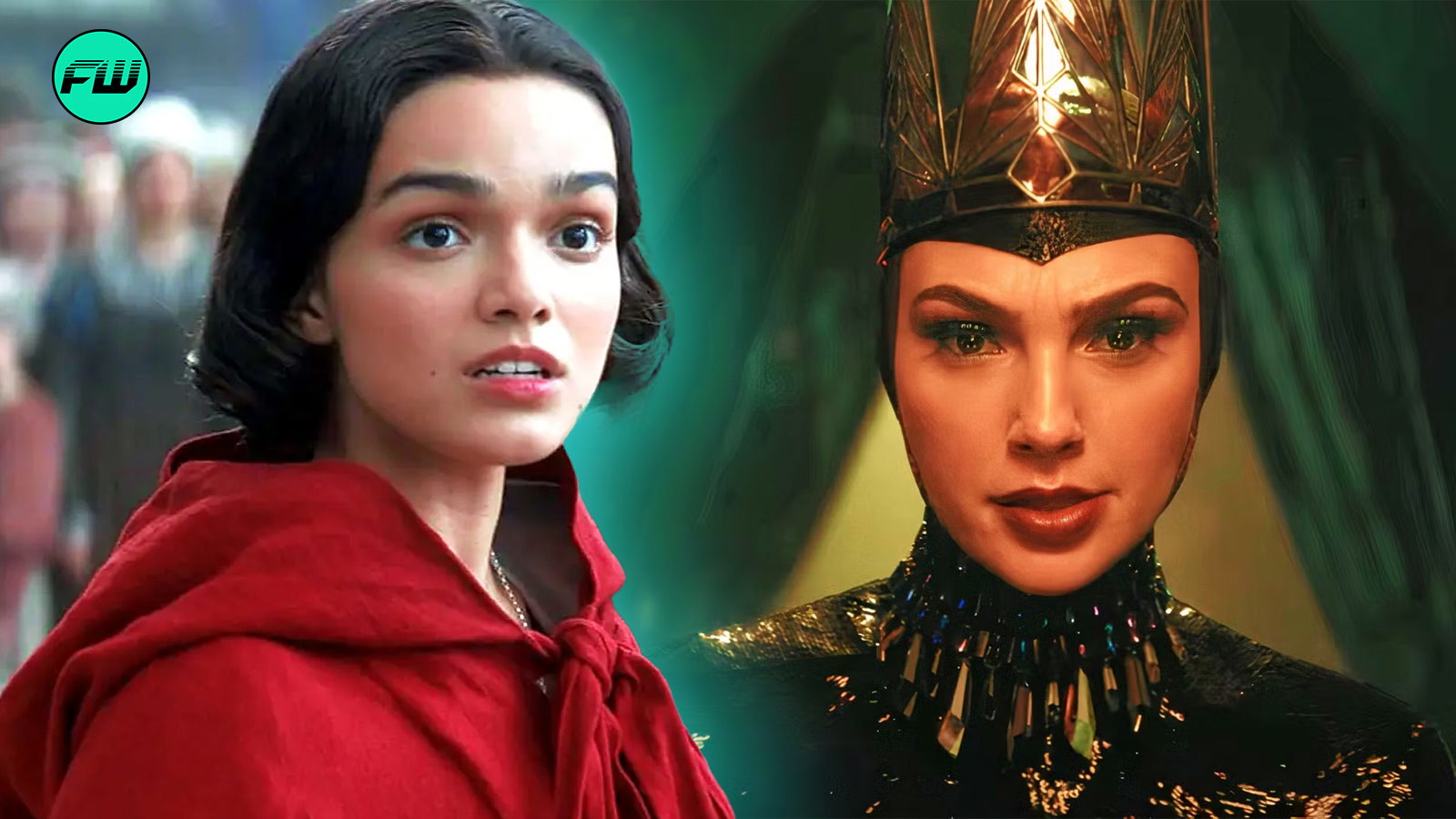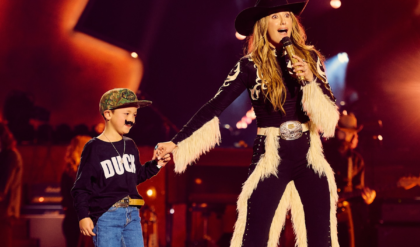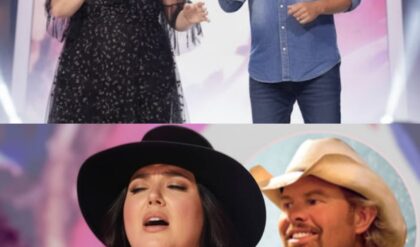A Shared Project, a Divided Dynamic
Rachel Zegler, a 23-year-old rising star of Colombian and Polish descent, and Gal Gadot, a 39-year-old Israeli actress and mother of four, were cast in Disney’s Snow White remake in 2021, with filming beginning in 2022. Zegler, fresh off her breakout role in Steven Spielberg’s West Side Story, brought youthful energy and a progressive perspective to the titular role, while Gadot, known for her portrayal of Wonder Woman, embodied the Evil Queen with a seasoned presence. On set, sources indicate that the two actresses maintained a professional rapport, with Gadot reportedly enjoying the filming process and finding Zegler agreeable. However, their relationship was described as cordial at best, with little personal connection due to their significant age gap and differing life experiences.
The cracks in their dynamic began to show as the film’s promotional campaign ramped up in late 2024 and early 2025. Snow White was already mired in controversy, from Zegler’s comments criticizing the original 1937 film as “dated” and its prince as a “stalker,” to backlash over the casting of a Latina actress as a character traditionally depicted with “skin as white as snow.” These issues set the stage for a fraught release, but the real tension between Zegler and Gadot emerged from their conflicting political stances, particularly regarding the Israeli-Palestinian conflict—a deeply divisive issue that has polarized public discourse.
Political Views at Odds: The Israeli-Palestinian Divide
The core of Zegler and Gadot’s tension lies in their opposing views on the Israeli-Palestinian conflict, a topic that has long been a flashpoint in global politics. Gadot, born in Israel and a former member of the Israel Defense Forces, has been a vocal supporter of her homeland, especially following the October 7, 2023, Hamas attacks. In social media posts at the time, she called for solidarity with Israel, writing, “I stand with Israel you should too,” and later warned of the dangers of propaganda that “dehumanizes” both Israelis and Gazans. Gadot has also advocated for the release of Israeli hostages, a stance she reiterated in a 2025 interview, where she emphasized her desire for peace and safety for all.
Zegler, by contrast, has consistently expressed support for the Palestinian cause. As early as May 2021, during the Gaza War, she tweeted, “It will always be free Palestine,” and has since urged her followers to donate to Palestinian relief funds. Her activism intensified in August 2024, when she posted on X, “And always remember, free Palestine,” alongside a promotional message for the Snow White trailer, which had garnered 120 million views in 24 hours. The post, which amassed 8.8 million views, drew sharp criticism from some quarters, particularly given Gadot’s Israeli background. The post led to a spike in death threats against Gadot, prompting Disney to hire additional security for the actress and her family.
The fallout was immediate. Snow White producer Marc Platt flew to New York to meet with Zegler, urging her to remove the post due to its potential to harm the film’s reception and exacerbate tensions with Gadot. Zegler, however, stood her ground, refusing to delete the message, a decision that underscored her commitment to her beliefs but also highlighted her lack of awareness of the repercussions, as one insider stated: “She didn’t understand the repercussions of her actions as far as what that meant for the film, for Gal, for anyone.” Disney, wary of further controversy, hired a social media specialist to monitor Zegler’s online activity leading up to the film’s release, a move that reflected the studio’s struggle to manage the narrative around a $270 million production.
Beyond Politics: Personal and Professional Differences
While their political differences were a significant catalyst, the tension between Zegler and Gadot was compounded by personal and professional disparities. Sources have noted that the two actresses “have nothing in common,” pointing to their 16-year age gap and contrasting life stages—Gadot as a seasoned actress and mother, and Zegler as a young star navigating her early 20s. This generational divide was evident in their approaches to the project. Gadot, described as professional and drama-averse, was reportedly “annoyed” by the controversies surrounding Snow White, believing that one should not “criticize and cause drama for a project you signed on to do.” Zegler, however, has been outspoken, often using her platform to address social and political issues, a trait that has both endeared her to fans and drawn criticism.
Their professional interactions further highlighted their differences. At the Snow White premiere on March 15, 2025, at the El Capitan Theatre in Los Angeles, the actresses were “mostly kept apart,” with Zegler seated two rows ahead of Gadot and her family. They posed for group photos but avoided one-on-one shots, and their body language appeared awkward, as noted by attendees. This distance was also evident during promotional events, with Zegler performing solo in Spain while Gadot promoted the film at Disneyland in Anaheim, California, without her co-star. Even at the 97th Academy Awards on March 2, 2025, where they presented an award together, observers remarked on their lack of interaction, with fans on X noting that they “didn’t even look at each other” and seemed to “can’t stand each other.”
A particularly contentious moment came after the Oscars when Zegler referred to Gadot as “a professional pageant queen” in an Instagram reply, a comment that many in the industry interpreted as dismissive of Gadot’s accomplishments as an actress, given her past as Miss Israel 2004. While the remark may have been intended as lighthearted, it reportedly deepened the rift, adding a personal layer to their already strained relationship.

The Fallout and Its Impact on Snow White
The tension between Zegler and Gadot has had a tangible impact on Snow White’s reception. The film, which cost $270 million to produce (and up to $450 million with marketing), was already facing an uphill battle due to multiple controversies, including Zegler’s comments on the original film, racist backlash over her casting, and criticism over the portrayal of the dwarves. The political clash between the two stars further fueled the fire, with pro-Palestinian activists calling for a boycott of the film due to Gadot’s involvement, while pro-Israel voices, such as Israeli consul Ofir Akunis, condemned Zegler’s stance as “disconnected from reality” and urged support for Gadot.
The film’s premiere was scaled back, with Disney limiting media access to photographers and house crew only, a decision attributed to fears of protests and further controversy. Box office performance reflected the troubled rollout, with Snow White earning just $43 million in its opening weekend, a far cry from the $100 million-plus openings of other Disney remakes like Aladdin and The Lion King. Critics were divided, with some praising Zegler’s performance but others calling Gadot’s portrayal “absolutely abhorrent” and labeling the film “toe-curlingly terrible.” The movie currently holds a 42% rating on Rotten Tomatoes, a disappointing outcome for a Disney tentpole.
A Broader Reflection: Hollywood’s Ideological Divide
The Zegler-Gadot fallout is emblematic of broader ideological divides within Hollywood, where personal beliefs increasingly intersect with professional projects. Zegler’s activism, while resonant with many of her peers, has made her a target for criticism, particularly from conservative audiences who viewed her post-election comments—“May Trump supporters and Trump voters and Trump himself never know peace”—as divisive, though she later apologized. Gadot, meanwhile, has faced her own backlash, with her pro-Israel stance leading to threats and boycotts, reflecting the challenges of navigating identity politics in the entertainment industry.
This clash also highlights the pressure on young stars like Zegler, who, at 23, has become a lightning rod for controversy. Ehenulo described Zegler as a “victim of culture wars,” arguing that actors from underrepresented backgrounds, like Zegler as a Latina, often face disproportionate backlash. Gadot, as a more established figure, has managed to maintain a professional demeanor, focusing on her role as an entertainer rather than a political voice, as she stated: “I’m an artist. I want to entertain people.”
Moving Forward: Paths Diverge
As of May 23, 2025, Zegler and Gadot have not publicly addressed their tensions, but their actions suggest a continued distance. Zegler’s Instagram tribute to Snow White upon its release notably excluded Gadot, focusing instead on other cast and crew members, a detail that did not go unnoticed by fans. Zegler has since shifted her focus to new projects, including a role in Evita on the West End and a CBeebies Bedtime Story appearance, signaling a desire to move beyond the Snow White controversy. Gadot, meanwhile, continues to promote her work, maintaining her stance on Israel while avoiding direct engagement with the drama surrounding her co-star.
The Zegler-Gadot saga underscores the challenges of maintaining professional relationships in an industry where personal beliefs can become public battles. While their tension may have contributed to Snow White’s rocky reception, it also reflects a larger struggle over how to balance activism, artistry, and audience expectations in a polarized world. For Zegler and Gadot, the path forward lies in carving out their own spaces—Zegler as a young activist and artist, and Gadot as a veteran actress and advocate—while navigating the fallout of a project that, despite its fairy-tale roots, has been anything but a happily ever after.





